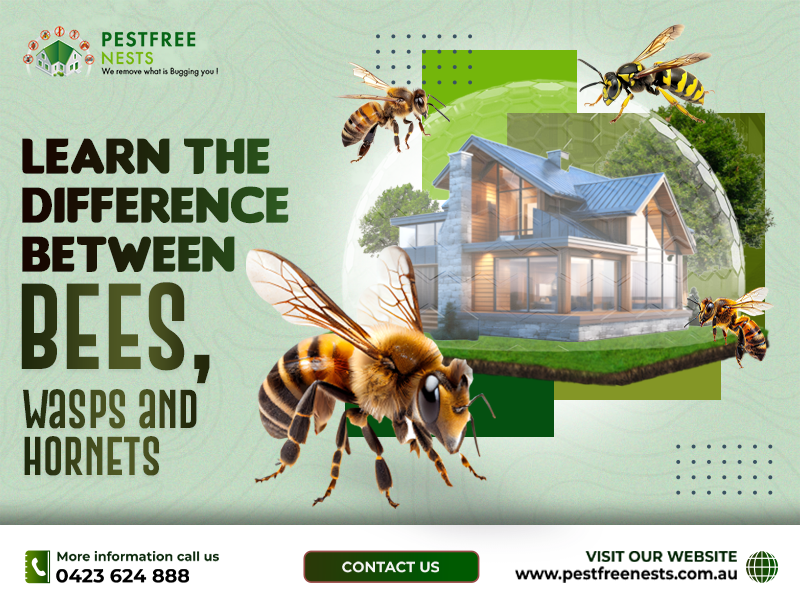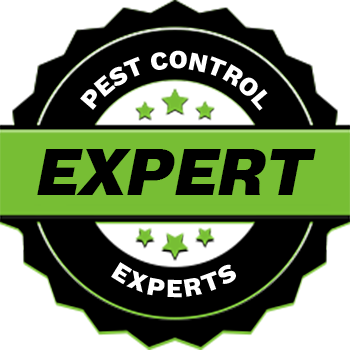
If you are finding it difficult to distinguish between bees, wasps, and hornets, you can contact professionals to learn more about these biting creatures. You may not know about these creatures at all. Whether you are looking for wasps, hornets, or bees control in Pakenham, you may be required to understand their lifestyle adequately. The behavioural and physical attributes of these insects can help differentiate them from others.
Winged insects are quite prevalent in Australia. So, you need to understand their behaviours and know their features to identify them and take measures accordingly. By getting rid of these insects from your home and the surrounding areas, you can protect yourself and your loved ones. So, here is the guide on wasps vs bees vs hornets.
What are Bees?
As the bees are part of the Apoidea family, bees fly around the area to collect pollen and nectar. Bees play an important role in the pollination process, making an effect on the ecosystem. From the bees, you can get honey, oil, and other raw materials.
How Many Species of Bees are Present?
In Australia, you can locate more than 2000 species of bees. It is possible to locate black carpenter bees that are about 24mm in length. However, there are also small bees, such as Quasihesma bees, which are 2mm in length. Plus there are also bumble bees and honey bees.
How to Control Bees?
By taking professional assistance, bees control in Pakenham is possible. First, it may be essential to analyse the location properly. Professionals can implement diverse types of strategies to remove the bees from the premises completely. If you want, you can also choose a non-toxic deterrent to remove the bees from the location.
What are Wasps?
Wasp comes from the order Hymenoptera and sub-order Apocrita. Similar to the bees, wasps also provide ecological services. Wasps are pollinators and predators. So they can safeguard your garden and farmland from different types of pests. The ecosystem becomes thriving and diverse thanks to the presence of wasps.
What are the Types of Wasps Present?
There are a thousand types of wasps present in Australia. For example, European wasps usually roam around the Barbeque area and can create huge colonies. These wasps are quite aggressive. Therefore, you may like to take action as soon as possible. There are also Asian Paper Wasps that may be less aggressive than the previous option. However, it has the ability to disrupt the local ecological balance. Some of the native wasps are sand wasps, flower wasps, and spider wasps.
What are Hornets?
Hornets can be considered as a specific type of wasps. Staying in the surroundings, hornets control spiders and other types of pests. However, they can help with the process of pollination at the same time.
What are the Types of Hornets Present?
Some of the most common hornets in Australia are Australian hornets, Asian hornets, and European hornets.
Difference In Terms of Look Between Bees, Wasps, and Hornets
Based on the physical appearance, you can find bees, wasps, and hornets.
Bees
Hair present in the body of the bees helps with the pollination process and temperature regulation. Looking at the size, you may find it to be large and round. Based on the different types of bees, you may be able to find some variation.
If you are allergic to the bee sting, you can call professionals for bees control in Brighton.
Wasps
Pointed lower abdomen area and also narrow waist in wasps make them different from the bees. Plus, they are usually hairless and smooth. Their legs may be hanging around when they fly around.
Hornets
Just like the wasps, hornets have a slim body in comparison to the bees. Hornets usually come with either black & white or black & yellow combination. Due to the yellow colour, you may perceive it to be a bee from afar. However, bees are rather golden than yellow.
Pest Free Nests have a team of professionals that can help with the wasp and bees control in Pakenham.
For any questions or to schedule a consultation, please contact us at Phone: 0423 624 888




